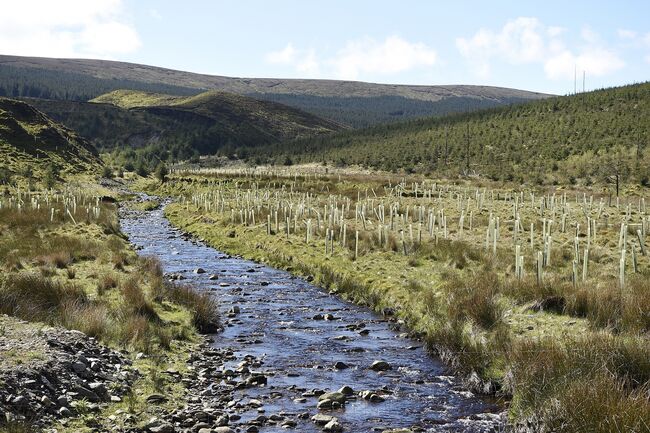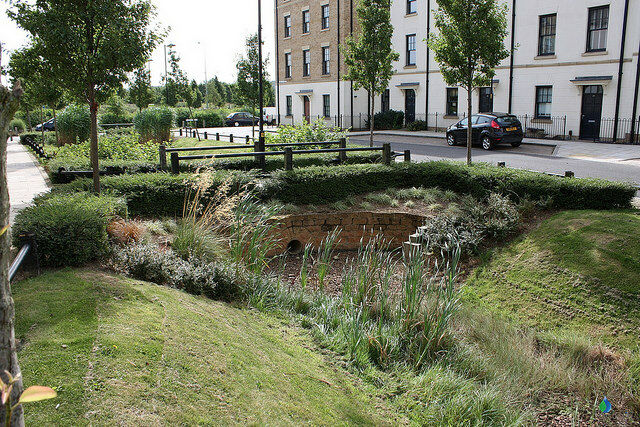Views
Budget 2021 – A water industry perspective
With the economy in the Covid-19 doldrums and COP26 meaning the eyes of the world are trained on the UK like a sniper’s laser, one might have suspected that the 2021 Spring Budget might have put the rocket boosters under our national mission to be net zero by 2050. Instead, we saw the Chancellor embrace a more ‘steady as she goes’ approach that keeps in place the many economic lifelines put in place during the pandemic, whilst taking some tentative, but notable, steps towards the Green Recovery for which stakeholders across the board are calling.
Among the myriad of policy and funding announcements from Wednesday, there was much to be welcomed. Not least the creation of a National Infrastructure Bank which will serve as an anchor investor, crowding in private sector investment in large infrastructure projects across the whole country and accelerating schemes that will enable the transition to a net zero economy. The new National Infrastructure Bank will bolster the water sector’s ability to finance schemes that will enable us to deliver on our Net Zero 2030 Routemap. Meanwhile, the creation of a UK Green Bond is an idea not unlike the innovative finance model used by some of our members, like Thames Water and Anglian Water, to fund green projects that underpin the transition to a resilient, net zero water supply.

In his speech, the Chancellor declared ‘it is sensible to take advantage of lower interest rates to invest in capital projects that can drive our future growth’. We support this, not only because interest rates are low, but because of the urgent need to increase the resilience of UK infrastructure and increase intergenerational fairness. Recent Green Recovery proposals from companies, such as Severn Trent Water and South West Water among others, show the kinds of opportunities in the water sector alone that can to improve outcomes for customers and the environment, while simultaneously creating high-skill, green jobs.
The extra £5.2billion announced for flood and coastal erosion schemes is also a welcome development in terms of mitigating flood risk, but it fails to fundamentally address the root cause of so much flooding. Policy change is needed to ensure surface water is managed naturally by default. That means that Sustainable Drainage Schemes (SuDS) should be mandatory in new developments and that housing developers no longer have an automatic right to connect to the sewer network. New housing development must not place additional unnecessary pressures on existing drainage infrastructure, unless it can be accommodated or it can be offset elsewhere in the network through SuDS. We hope to see progress on this when the Government moves forward with its planning reforms.

Similarly, the Budget appears to have little to say on greening the country’s building stock to reduce carbon emissions – we want to see more focus on improving the efficiency of both energy and water use in homes and businesses. Simple measures can help reduce water and energy use, as well as cutting consumer bills and the associated carbon footprint. The Environment Bill is the crucial opportunity to address this.
On skills, the extension of the funding for apprentices of any age, and the £126 million for high quality work placements, will help water companies invest in new skills and create more employment opportunities across the UK. Companies employ hundreds of apprentices in a range of exciting and varied roles from bio-resources and digital to engineering and finance. Water companies have critical role to play in delivering on the Government’s levelling up agenda through creating high quality, well-paid green jobs in all regions of the UK.
In all, the Chancellor used the Budget to put in place measures to reignite the UK’s stalling economy and rightly protect those who need it most. However, the Chancellor could have used his last major fiscal statement before COP26 to be more ambitious in tackling the more existential challenges posed by climate change, particularly in the year when the world is watching us in Glasgow. In the same period, it will be important for government to ramp up the engagement with the water sector. Many of their plans, such as those for hydrogen production, will only meet expectations if the extra water capacity required is included in industry plans.
Finally, we can confirm that the industry is investigating leakage reports in the No.11 Downing Street area in the days ahead of the Budget.




